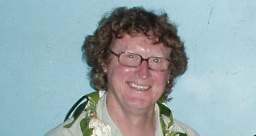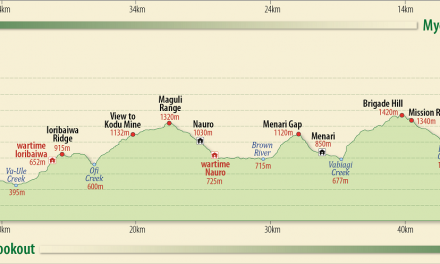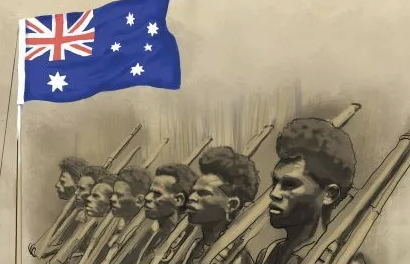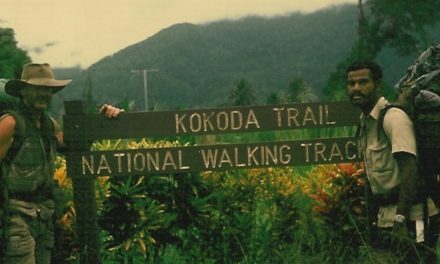The Rise, Fall and Future of Kokoda Tourism
‘There is overwhelming evidence that the term ‘Kokoda’ has been effectively hijacked to provide relevance to the engagement of environmentalists, anthropologists, archaeologists and social engineers in areas related to social mapping, village livelihoods, gender equity, ecosystems services options, capacity building, and mentoring beyond the gazetted borders of the Kokoda Trail.
‘But almost nothing has been invested in our shared military heritage across the Trail or the economic empowerment of traditional landowner communities.’
More than 56,000 Australians, motivated by the military heritage of the Kokoda campaign and the physical challenge it presents, have trekked across the Kokoda Trail over the past two decades. Many are intrigued with the aura of the ‘land of the unexpected’.
The Trail is now PNGs most popular tourism destination which has generated some K700 million for the PNG economy.
But since the Australian Department of Environment, Water, Heritage and the Arts (DEWHA) took control of the place in 2009 trekker numbers have fallen by 46 percent due to their priority towards environmental issues at the expense of pilgrimage tourism.
This has resulted in a cumulative loss of some K50 million in foregone wages, campsite fees and local purchases for village communities across the Trail.
The primary influencer for the subtle change in priority from pilgrimage tourism to socio-environmental issues appears to be Mr. Mark Nizette MBE, Strategic Management Advisor to the DFAT ‘Kokoda Initiative’ and Secretary to the influential ‘Kokoda Initiative Committee’ within the PNG Conservation Environment Protection Authority (CEPA).
It is not known what strategic management advice Mark Nizette has provided regarding the commercial management of Kokoda tourism since he was appointed to the position in 2011, however under his watch since then:
- There has been no investment in the protection, development and interpretation of major battlesites across the Trail to enhance the value of the pilgrimage for trekkers or to increase income earning opportunities for traditional landowners;
- No environmental interpretation signs, common in Australia’s National Parks, have been placed anywhere along the Trail to enhance the educational aspect of the trek;
- There is overwhelming evidence that the term ‘Kokoda’ has been effectively hijacked to provide relevance to the engagement of environmentalists, anthropologists, archaeologists and social engineers in areas related to social mapping, village livelihoods, gender equity, ecosystems services options, capacity building, and mentoring beyond the gazetted borders of the Kokoda Trail.
- Almost nothing has been invested in our shared military heritage across the Trail or the economic empowerment of traditional landowner communities.
A recent attempt to sneak a Bill for a ‘Kokoda Track Management Authority’ into the PNG Parliament under the cover of Covid inadvertently exposed a hidden agenda under the guise of the name ‘Kokoda Trail’.
The intention of the Bill is to permanently transfer responsibility for the Kokoda Trail from the Department of Provincial and Local-Level Government Affairs (DPLLGA) to CEPA; strip traditional landowners of representation on the Board; and deny the Tourism Promotion Authority (TPA) of the opportunity to develop the Kokoda Trail as a World-Class pilgrimage destination.





